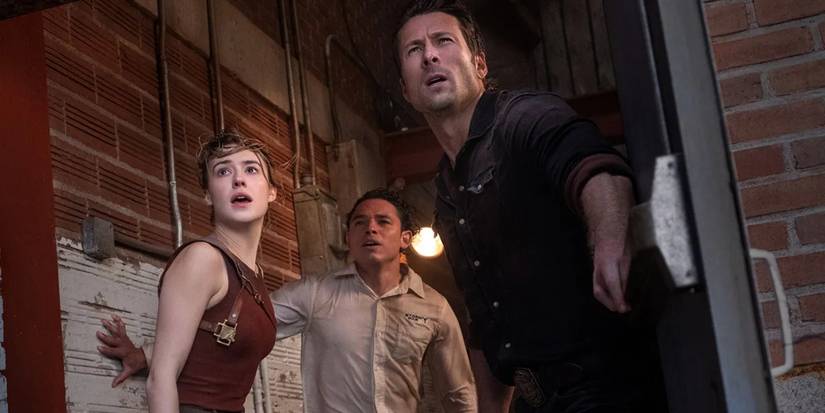With his first two films, 2022’s Barbarian and 2025’s Weapons, director Zach Cregger has quickly established himself as one of the most exciting filmmakers in horror. His movies have thus far demonstrated a deep love for the genre and its conventions, along with a willingness to subvert them to create distinct and memorable experiences. Weapons was a big success at the box office, proving that there’s still room for new stories at the multiplex.
The success of Weapons is a big part of what makes Cregger’s next career move seem a little disappointing. In January, it was announced that Cregger’s next film would be a Resident Evil adaptation, marking the beginning of a new era for the franchise. While there’s no doubt he’ll give it his all, the news makes him the latest director to break out with an acclaimed (and profitable) original idea, only to get sucked into Hollywood’s current era of franchise building and legacy sequels.
What “Moving Up” in Hollywood Used To Look Like
Ever since the dawn of the indie revolution in the late 1980s, many filmmakers have aspired to bring their visions to life with the backing of major Hollywood studios, working with larger budgets and stars to tell stories on a grander scale than they previously had access to. Auteurs like Steven Soderbergh and Quentin Tarantino broke out with early independent films before being allowed to helm larger productions. In that sense, filmmakers like Cregger are just following that path.
However, Hollywood is vastly different now; an original idea is unlikely to receive the kind of budget that previous filmmakers enjoyed. Movies like Tarantino’s Django Unchained and Soderbergh’s Ocean’s trilogy are big productions. Yet, they still feel like the work of an individual artist with a unique sensibility and point of view that couldn’t be made by anyone else. Filmmakers like Tarantino and Soderbergh were able to translate their styles to a larger scale while still making movies that felt like their own.
Nowadays, big studios aren’t nearly as likely to throw $100 million at an idea that may not yield a substantial return on investment, and the sad truth is that many of the original ideas that have managed to get made haven’t been able to pull that off in theaters in recent years. As a result, Hollywood has become even more dependent on adaptations, sequels, and franchises, banking on audiences’ familiarity with a property to drive them to the theater. Some still manage to sneak through, like Paul Thomas Anderson’s One Battle After Another (technically an adaptation, but a very loose one). However, it remains to be seen whether that film will recoup its surprisingly large budget of around $130 million.
How Indie Filmmakers Lose Their Identities in Hollywood
Lately, some indie directors have been able to make the jump to the studios, but more often than not, what made their work exciting in the first place tends to get lost. Lee Isaac Chung broke out in a big way with his gentle, personal indie film Minari in 2020, giving him the opportunity to direct Twisters in 2024, a film where his directorial sensibility largely had to take a backseat to the demands of making a legacy sequel. There’s little in Twisters that suggests it’s a product of the same director who made Minari, to the point that even fans of Chung’s debut might be surprised to learn he directed it.
Similarly, filmmakers like Destin Daniel Cretton, known for Short Term 12, and Ryan Fleck and Anna Boden, known for Half Nelson, were tapped to helm Marvel movies Shang-Chi and Captain Marvel, which were far from the grounded, naturalistic style that got them noticed in the first place. Those films had to operate within their sprawling franchise, where a filmmaker’s individual sensibilities and aesthetics rarely factor into the equation.
Some filmmakers find ways to let their personalities shine, even within the rigid confines of franchise filmmaking. For all its faults, Marvel’s Eternals felt in certain ways like the product of Chloé Zhao, with a similar golden-hour aesthetic to Nomadland and The Rider. Perhaps the most prominent recent example is Greta Gerwig, who transformed Barbie into a distinct work of art that explored much more than just selling toys, becoming one of the most thoughtful blockbusters in recent memory (that also managed to make more than a billion dollars).
Time will tell whether Cregger’s foray into the world of video game adaptations will end up more in the former or the latter camp, but hopefully it doesn’t signal a complete turn away from the kinds of stories that established him as a filmmaker to watch. As an avowed fan of the games, he’s clearly coming at it with the right intention, and if anyone can make it more than just an opportunity to revive a flagging franchise, it’s him. But it’s hard not to feel a little disappointed that so many talented and unique filmmakers have been swallowed up by Hollywood’s current anonymized, risk-averse era.


